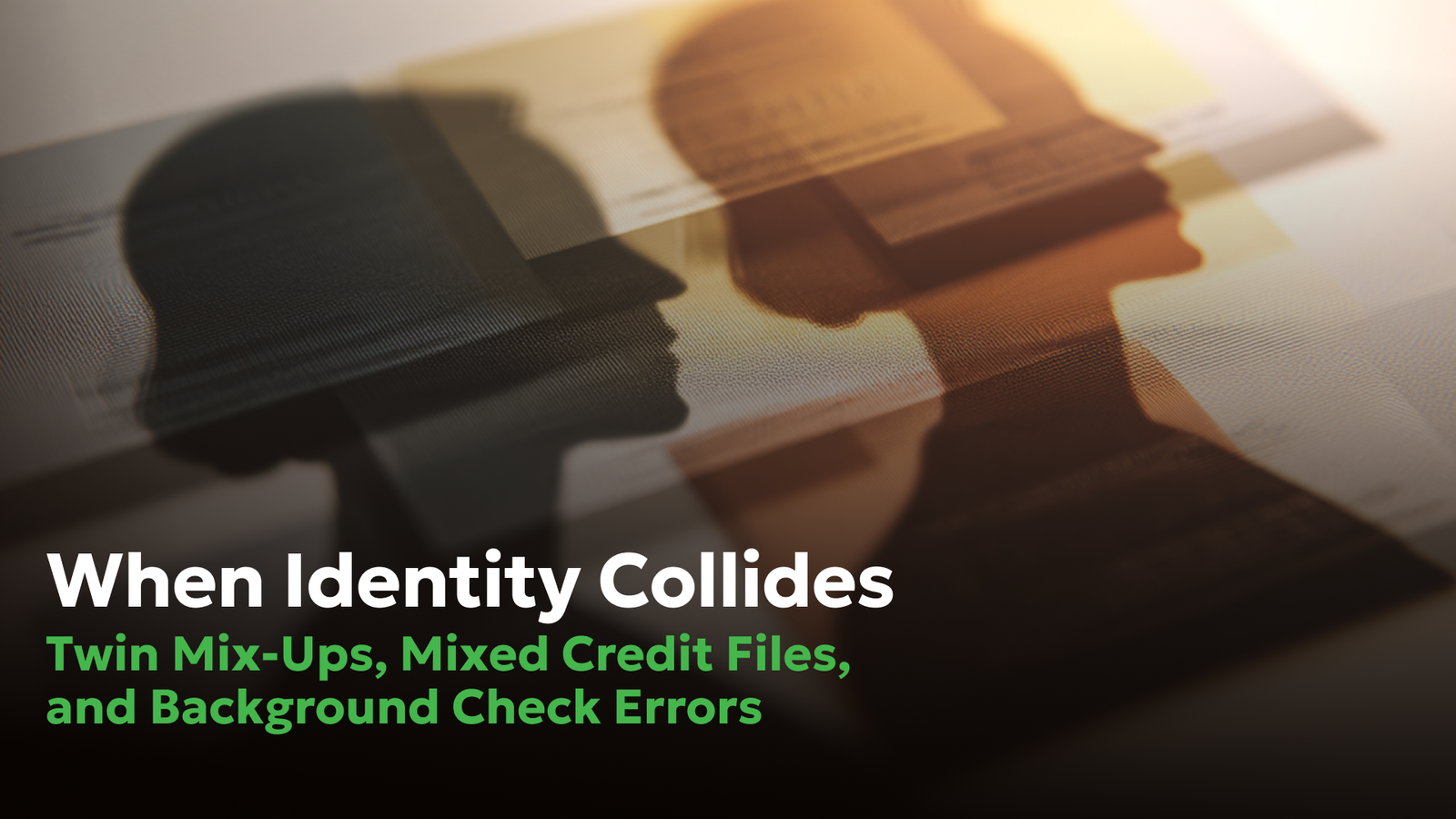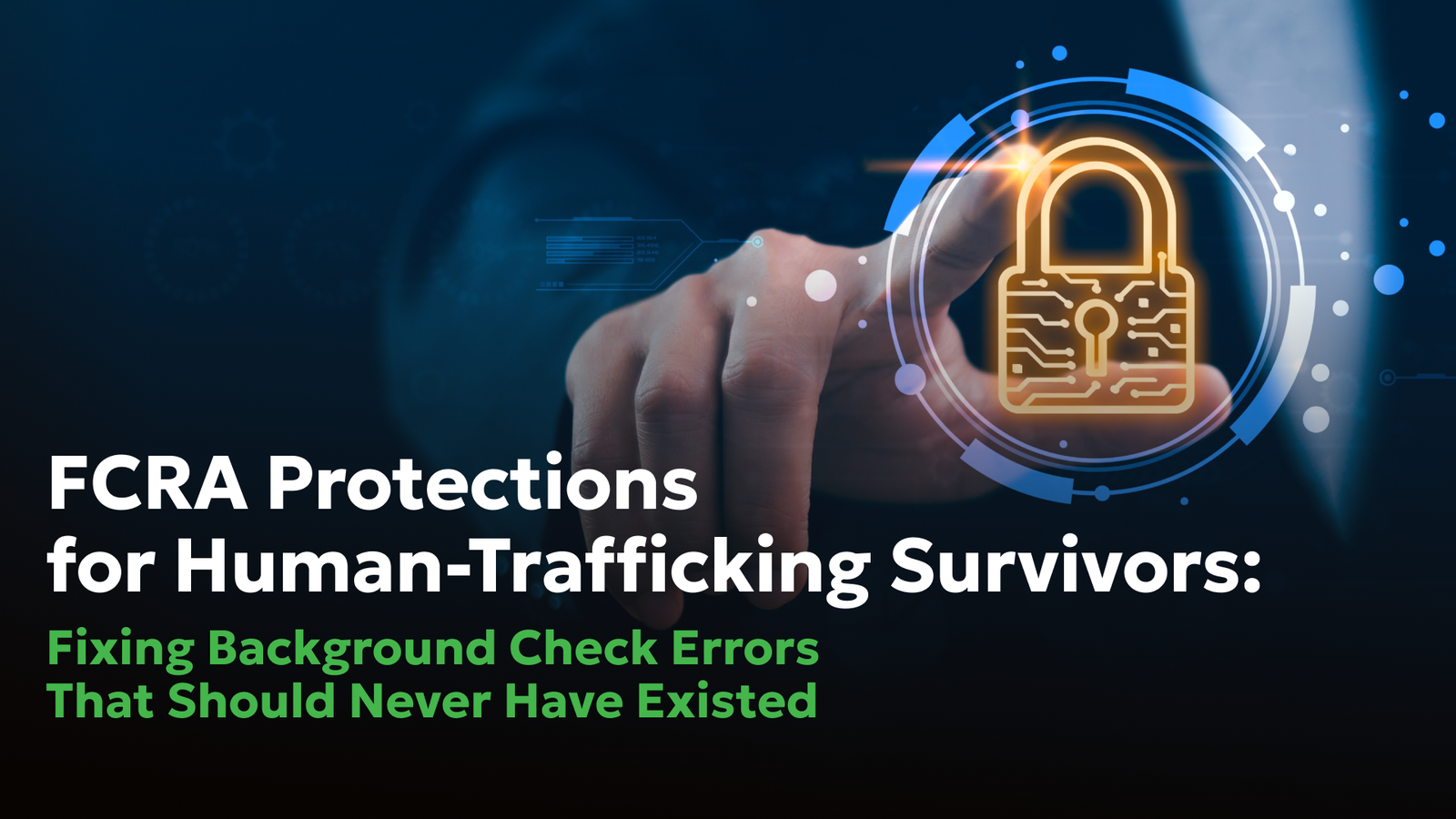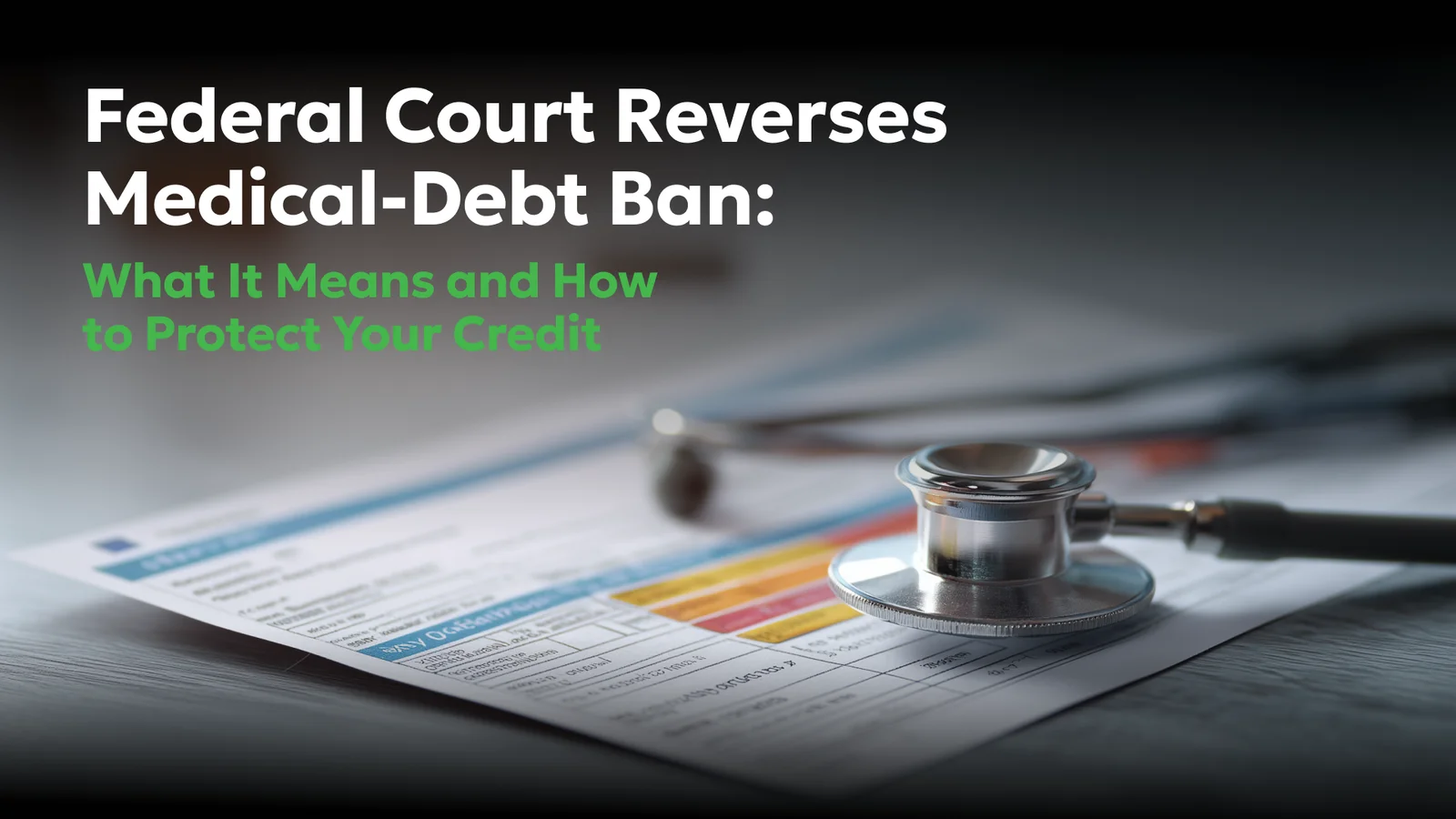How to Start an Equifax Dispute
- Blog
- Credit Reporting Inaccuracies
How to Start an Equifax Dispute

Equifax credit reports can (and often do) contain mistakes. Learn how to start a dispute to get those mistakes fixed.
Whether you found the mistake during a regular review or after you applied for a loan, disputing an error on your Equifax credit report is essential. Getting the dispute process started can be confusing. Equifax’s website tells you how they want you to start the dispute process. Here’s how the attorneys at Consumer Attorneys think you should start.
Sometimes, the most challenging part is getting started. That includes filing a dispute with Equifax about an error in your credit report. It’s easy to postpone the process while thinking the damage has already been done. It’s easy to feel overwhelmed by the process while thinking there’s no way a giant company like Equifax will take you seriously. It’s also hard to know exactly where to begin.
Consumer Attorneys is here to let you know that if you become aware of an error in your Equifax credit report - either by reviewing it yourself or by being denied a loan or credit for which you applied - you absolutely should get over that first step and file an Equifax dispute.
This article will show you how to begin and give you all the information you need, so you (or we) can effectively dispute inaccuracies on your Equifax credit report.
Who or What is Equifax?
Equifax is one of the three major consumer reporting agencies in the United States, alongside Experian and TransUnion. Because of their size and reach, these three agencies are also known as the credit bureaus. Equifax plays a crucial role in the financial lives of millions of Americans and people worldwide. It collects and maintains financial information on over 800 million consumers and over 88 million businesses worldwide.
The company leverages advanced technology to gather, analyze, and distribute this data to various entities, including lenders, mortgage companies, employers, and landlords.
In recent years, Equifax has reported substantial profits. In 2023, Equifax generated over $4 billion in revenue, a number that illustrates its significant influence in the credit reporting industry. However, with great power comes great responsibility, and errors in Equifax reports can have profound consequences for consumers.
Reasons You Can Dispute an Inaccuracy on Your Equifax Report
Common errors include:
- Incorrect personal information, such as your name, address, or Social Security number
- Accounts that do not belong to you
- Incorrect account statuses, such as showing a paid-off loan as outstanding
- Duplicate accounts
- Inaccurate credit limits or loan amounts
- Incorrect public records, such as bankruptcies or tax liens
Addressing these issues as soon as possible will help you maintain a healthy credit profile and ensure that your credit report accurately reflects your financial responsibility.
Dispute Inquiries Equifax
In addition to disputing credit report inaccuracies, you can dispute inquiries on Equifax. Unauthorized inquiries can affect your credit score, so addressing any that appear suspicious is essential. To dispute credit inquiries on Equifax, follow the same process outlined above, specifying the inquiries you believe are unauthorized.
Equifax Dispute Deceased
If you find that Equifax has mistakenly reported you as deceased, it’s crucial to act quickly. This error can severely impact your credit and financial life. Contact Equifax immediately and provide proof of your identity, such as a government-issued ID and a recent utility bill or bank statement, along with your dispute letter.
Reasons You Should Dispute an Inaccuracy on Your Equifax Report
Disputing inaccuracies on your Equifax credit report is necessary for several reasons. First, incorrect information can negatively impact your credit score. This leads to loan and credit card application denials or higher interest rates on the loans and credit cards for which you are approved.
Mistakes in your credit report can also result in housing denials and difficulty getting employment.
The mental, emotional, and reputational impact of having credit issues can also be significant.
Equifax Dispute Statistics
| Disputes by the numbers | Amount |
|---|---|
| Total number of disputes with Equifax annually | 3 million |
| Percentage of successful disputes with Equifax | 75% |
| Average time to resolve a dispute with Equifax | 35 days |
| Percentage of consumers disputing at least one Equifax report | 10% |
Distribution of Errors Among the Credit Bureaus
| Type of Error | Equifax | Experian | TransUnion |
|---|---|---|---|
| Personal information (wrong name, address, SSN, etc.) | 32% | 30% | 28% |
| Account and credit limit (incorrect available balance, date opened, etc.) | 22% | 20% | 21% |
| Account status (wrongly reported as opened or closed) | 24% | 25% | 23% |
| Duplicate accounts (single account reported as multiple accounts) | 12% | 10% | 11% |
| Public record (inaccurate info about properties, bankruptcies, lawsuits, etc.) | 10% | 15% | 17% |
Reasons Not to Dispute an Error in Your Equifax Report
There are no valid reasons not to dispute an error on your Equifax credit report.
A common misconception is that disputing a credit report error will negatively impact your credit score. This is false. Correcting inaccuracies can only benefit your credit health and ensure that your report is accurate, protect your financial reputation, and improve your ability to access credit with favorable terms.
Do not let fear or misinformation prevent you from taking action. It is your right to have an accurate credit report, and Equifax is legally obligated to investigate and correct any errors you report.
How an Attorney Can Help
Engaging an attorney can significantly streamline the Equifax dispute process and provide peace of mind. An attorney can guide you through the steps to dispute a credit report error with Equifax, ensuring that you understand your rights and the necessary actions. By working with an attorney, you can ensure that your dispute is handled correctly and that all your rights are protected throughout the process. A credit report attorney will provide valuable support. They will also help you gather the necessary documentation and evidence to support your dispute.
Perhaps most significantly, if your dispute is not resolved satisfactorily, an attorney can represent you in a lawsuit against Equifax. Since your attorney will already be familiar with your case, they will be ready to take swift and effective action.
How to Dispute a Credit Report Error with Equifax
To initiate an Equifax credit dispute, follow these steps:
- Request a copy of your credit report. Start by requesting a free copy of your Equifax credit report. You can get one free report every week and can request by visiting the Equifax website.
- Review your report for errors. Carefully examine your report for any inaccuracies. Make a list of the errors you find.
- Gather supporting documentation. Collect any documents that support your claim. This might include payment receipts, bank statements, or correspondence with creditors.
- Prepare Your Dispute Letter. Write an Equifax dispute letter. Identify the errors, provide the correct information, and include copies (not originals) of your supporting documents. Be concise and factual.
- Mail your dispute via certified U.S. Mail. You can dispute something on your Equifax credit report online, by mail, or by phone. While doing so online is faster, doing so via certified U.S. Mail preserves your right to file a lawsuit against Equifax should it be necessary. Send your letter and documents to Equifax Information Services LLC, P.O. Box 740256, Atlanta, GA 30374-0256.
- Keep all records. Maintain copies of your dispute letter, supporting documents, and any correspondence with Equifax. This will be crucial if you must follow up or escalate your dispute.
Equifax Credit Report Dispute Process
| Stage | Description |
|---|---|
| 1. Document Gathering | Collect all necessary documents and evidence |
| 2. Dispute Submission | Submit the dispute via website, mail, or phone (We recommend certified mail to preserve your legal rights.) |
| 3. Equifax Review | Equifax investigates the dispute and requests information from creditors |
| 4. Credit Report Update | If the dispute is successful, Equifax updates the credit report |
| 5. Consumer Notification | Consumer receives notification of the dispute result |
| 6. Legal Intervention | If Equifax fails to properly investigate or correct the errors, a lawsuit may be necessary. |
Disputing inaccuracies on your Equifax credit report is a critical step in maintaining your financial health. While the process may seem intimidating, understanding your rights and following the outlined steps can make it manageable. Remember, there are no downsides to correcting errors on your credit report, and doing so can only improve your credit standing. Doing so with a lawyer from Consumer Attorneys at your side will make the process go more smoothly.
Resources
| Source | Link |
|---|---|
| Federal Trade Commission (FTC) | ftc.gov |
| Consumer Financial Protection Bureau (CFPB) | consumerfinance.gov |
| Society for Human Resource Management (SHRM) | shrm.org |
| Credit Bureau Statistical Data | creditreport.com |
| Equifax Official Documentation | equifax.com |
Frequently Asked Questions
The process for Equifax to remove dispute remarks from your credit report should take about 30 days from the time you file the dispute. Once you send your dispute via certified U.S. Mail, Equifax must investigate the claim within 30 days. They must correct your credit report if it resolves the dispute in your favor. If Equifax ignores the dispute or does not find in your favor, then you must escalate the dispute. An attorney at Consumer Attorneys can help you with deadlines, monitor the dispute, and, if necessary, follow up with Equifax.
Filing a dispute with Equifax is a relatively straightforward process that, with the help of an attorney, will not take much of your time. While you can start a dispute online through the Equifax website or by phone, doing so by certified U.S. Mail is the only way you should start a dispute. This way, you preserve your rights to bring a lawsuit against Equifax should things go awry. The time it takes to gather the necessary documentation and write a dispute letter depends on the type of error on your Equifax report and how readily you can provide supporting documents. After submission, Equifax must investigate within 30 days under the Fair Credit Reporting Act (FCRA) guidelines.
You will receive a notification from Equifax regarding the outcome of your dispute once they complete the investigation. Equifax communicates the results through the method by which you filed the dispute. This notification will include details on whether your dispute was approved, the findings of their investigation, and any changes they made to your credit report. Additionally, a lawyer can help you monitor the progress or lack of progress in your dispute and be ready to escalate things should that become necessary.
If you and your Consumer Attorneys lawyer determine that a lawsuit against Equifax is advisable, the first step is filing that lawsuit. The timing of everything after that will depend on the strength of your case, if there are any co-defendants, and the size of the settlement. Having an attorney by your side throughout the whole process will make things go more smoothly. Also, unless you file a lawsuit, there will be no settlement check. Equifax does not provide settlement checks just because you had an error in your credit report.


Daniel Cohen is the Founder of Consumer Attorneys. Daniel manages the firm’s branding, marketing, client intake and business development efforts. Since 2017, he is a member of the National Association of Consumer Advocates and the National Consumer Law Center. Mr. Cohen is a nationally-recognized practitioner of consumer protection law. He has a we... Read more
Related Articles




R
ONGS™You pay nothing. The law makes them pay.







